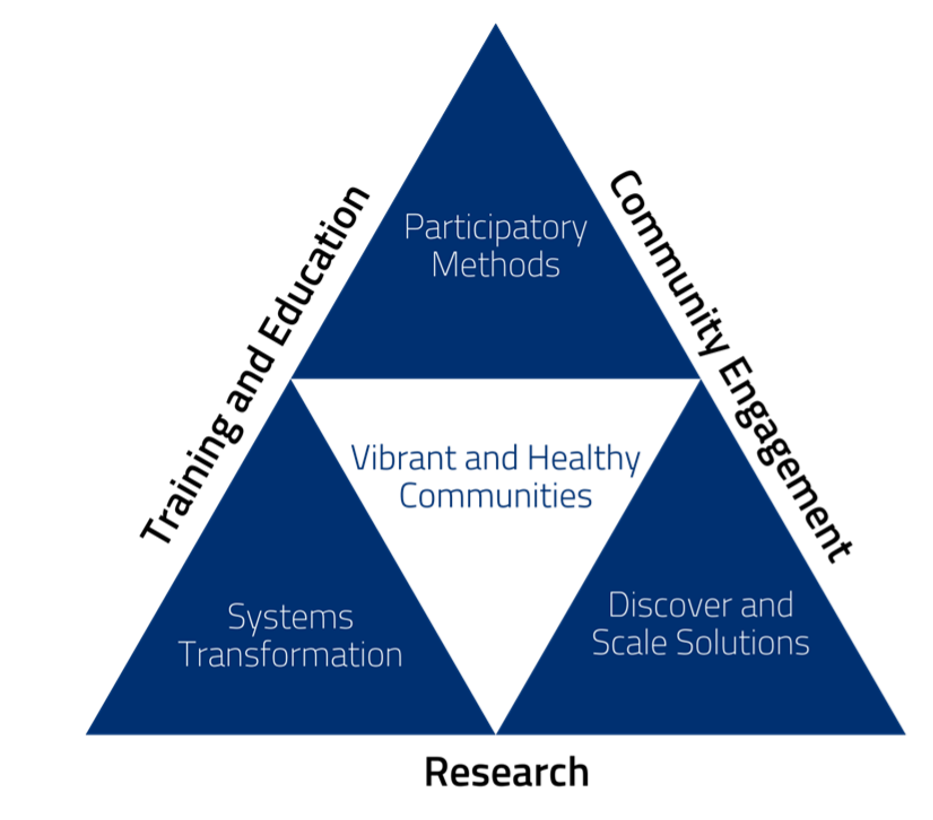For over 30 years, the Mary Ann Swetland Center for Environmental Health has cultivated partnerships to develop and expand solutions that enhance environmental health for everyone. Our work encompasses various exposures influencing health outcomes throughout life, such as asthma, chronic diseases, mental health and infant vitality. We are recognized for our collaborative and adaptive approach that transcends boundaries to foster healthy environments where people thrive.
The mission of the Mary Ann Swetland Center for Environmental Health is to accelerate pathways to vibrant and healthy environments through collaborative research, immersive training, and authentic community engagement.
We envision a world where environments are designed to promote holistic health for everyone.
Collaborative
We believe in the strength of our collective voices, knowledge, and experiences as foundational strands to form a foundation of co-creation.
Participatory
We believe that trusting relationships pave co-designed pathways to realize environmental health for all
Respect
We believe in acknowledging and honoring rich traditions, learning styles, experiences and value the dignity of all people.
Innovative
We believe that engaging different perspectives is foundational to a culture of innovation.
The Swetland Center is committed to advancing vibrant and healthy environments through:
- Collaborative Research: Driving systems transformation to achieve environmental health for all.
- Research Capacity Building: Emphasizing participatory research and community-level translational science for tangible, real-world impact.
- Cross-Sector Relationship Building: Engaging different sectors to effectively address emerging environmental health needs and interests.
- Collective Impact: Collaborating with partners on initiatives to further community well-being.
The Swetland Center has a three-pronged approach focused on research, training and education, and community engagement. Our goal is to build capacity for the next generation of scientists to work alongside community partners to promote healthy environments for people to thrive.
1. Participatory Method
We apply participatory and action-oriented methods that bring different people to the table. We focus on building trusting relationships to ignite change. With an eye on translation, our goal is to collaborate to ensure scientific evidence reaches the right audience at the right time.
2. Systems Transformation
TheWe are committed to transforming systems to balance the burdens and benefits of environmental exposures. We do this through:
- Ecological and qualitative methods that allow for a deeper understanding of the interconnections between the environment and health.
- Systems methods that show complexity, interdependencies, nonlinear relationships, and time delays between environmental exposures and health outcomes.
- Computational and technology-based methods to develop decision support tools for use by partners in public policy, government, and communities.
3. Solution Orientation
We are engaged in intervention development, implementation, evaluation, and dissemination to inform policies and practices in the real world. We move beyond describing problems and look to communities to find and scale community-driven solutions.


